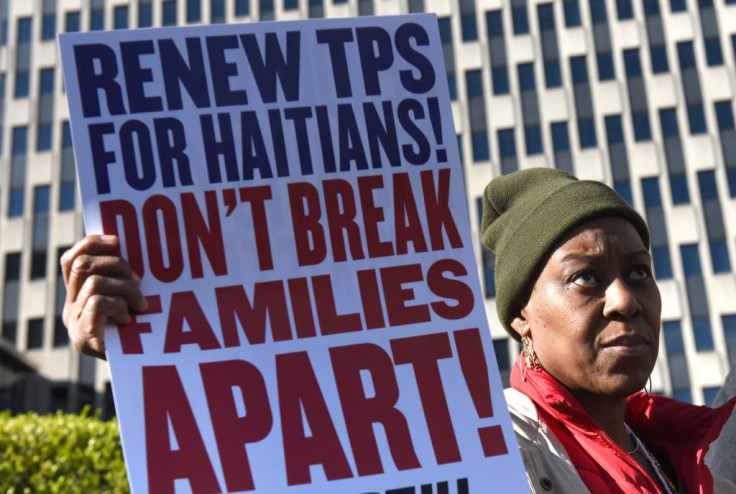
In a move that could affect more than 500,000 people, the Trump administration announced Friday that it will end Temporary Protected Status (TPS) for Haitians on Sept. 2, as DHS Secretary Kristi Noem determined that conditions in Haiti no longer meet the statutory requirements for TPS protection.
A statement details that Noem's decision was based on a review by U.S. Citizenship and Immigration Services of current conditions in Haiti. She concluded that the situation in the Caribbean nation has improved enough to allow Haitians to "return home in safety."
The statement also said that permitting Haitian nationals to remain in the United States is "contrary" to the national interest. It encouraged Haitian nationals to use the U.S. Customs and Border Protection CBP One app to report their departures.
"This decision restores integrity in our immigration system and ensures that Temporary Protected Status is actually temporary," a DHS spokesperson said. "The environmental situation in Haiti has improved enough that it is safe for Haitian citizens to return home."
Although the current TPS designation is set to expire on Aug. 3, the termination will officially take effect on Sept. 2.
As reported by the Miami Herald, it remains unclear how DHS reached the conclusion to end TPS for Haitian migrants, as the State Department currently warns Americans not to travel to Haiti "due to kidnapping, crime, civil unrest and limited health care."
More than a dozen countries around the world—including parts of Mexico, Venezuela and Haiti—are currently labeled as Level 4: Do Not Travel by the State Department.
"Since March 2024, Haiti has been under a State of Emergency. Crimes involving firearms are common in Haiti. They include robbery, carjackings, sexual assault and kidnappings for ransom," the advisory reads.
Haitians already living in the United States were able to live and work legally thanks to TPS. The current designation was granted by former President Joe Biden and extended to February 2026 before his term ended.
Noem revoked that decision and effectively rolled back protections, shortening the timeline by nearly 18 months.
Haitian migrants are not the only group at risk of losing their protected status. Earlier this year, the Trump administration signaled that a similar outcome was likely for Venezuelan migrants.
Just last month, the Supreme Court allowed the Trump administration to cancel TPS for more than 300,000 Venezuelans across the country, signaling that other terminations also may be permitted to move forward.
The Biden administration had granted TPS to Venezuelans in 2021, citing repression, humanitarian collapse and civil unrest under President Nicolás Maduro. Biden later extended those protections in January, allowing them to remain legally in the U.S. until October 2026.
But since returning to the White House, Trump officials have argued that conditions in Venezuela no longer justify continued protections. The administration has framed both moves as efforts to reassert immigration controls, although critics argue they could put thousands of people at risk.
Revoking protections for Haitian migrants has been among Trump's targets since his first term.
On the campaign trail, Trump reiterated a widely debunked rumor from a local city council meeting in Springfield, Ohio, where a resident falsely claimed Haitian immigrants had been harming park animals, with Trump citing the claim while vowing to deport thousands of Haitian migrants.
The administration's move is expected to face legal challenges, as did similar efforts during Trump's first term. In 2017, his administration attempted to end TPS for Haitians and other groups, but the action was ultimately blocked by a federal court.
Experts say the latest decision could force thousands of Haitians to return to unsafe conditions.
"I'm still in shock. I'm totally disgusted," said Tessa Petit, executive director of the Florida Immigrant Coalition and a Haitian immigrant. "This is a complete lie—stating that the situation in Haiti has improved enough for citizens to return home. That is simply not true," she told Newsweek.
© 2025 Latin Times. All rights reserved. Do not reproduce without permission.







